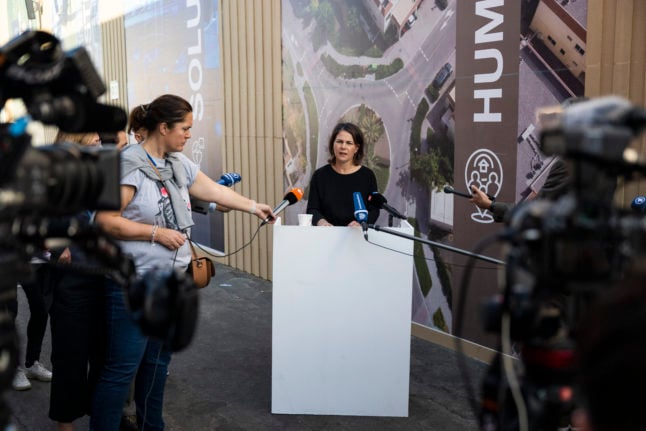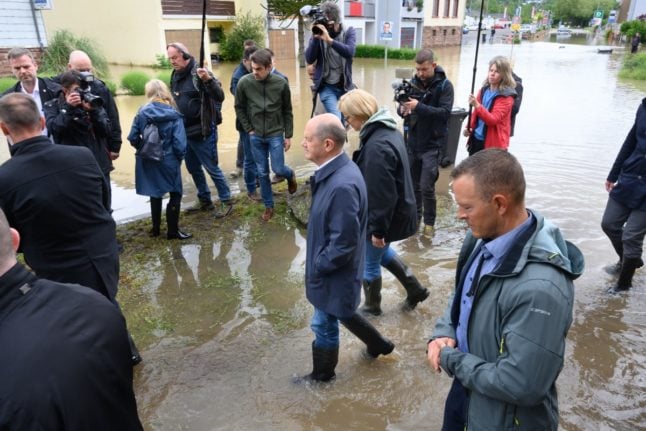A fraught UN climate summit wrapped up Sunday with a landmark deal on funding to help vulnerable countries cope with devastating impacts of global warming — but also anger over a failure to push further ambition on cutting emissions.
The two-week talks in Egypt’s Red Sea resort of Sharm el-Sheikh, which at times appeared to teeter on the brink of collapse, delivered a major breakthrough on a fund for climate “loss and damage”.
Pakistani climate minister Sherry Rehman said COP27 “responded to the voices of the vulnerable, the damaged and the lost of the whole world”.
“We have struggled for 30 years on this path, and today in Sharm el-Sheikh this journey has achieved its first positive milestone,” she told the summit.
Tired delegates applauded when the loss and damage fund was adopted as the sun came up Sunday following almost two extra days of negotiations that went round the clock.
But jubilation over that achievement was countered by stern warnings. UN chief Antonio Guterres said the UN climate talks had “taken an important step towards justice” with the loss and damage fund, but fell short in pushing for the urgent carbon-cutting needed to tackle global warming.
“Our planet is still in the emergency room,” Guterres said. “We need to drastically reduce emissions now and this is an issue this COP did not address.”
‘Stonewalled by emitters’
A final COP27 statement covering the broad array of the world’s efforts to grapple with a warming planet held the line on the aspirational goal of limiting global warming to 1.5 degrees Celsius from pre-industrial levels.
It also included language on renewable energy for the first time, while reiterating previous calls to accelerate “efforts towards the phasedown of unabated coal power and phase-out of inefficient fossil fuel subsidies”.
But that failed to go much further than a similar decision from last year’s COP26 meeting in Glasgow on key issues around cutting planet-heating pollution.
Germany Foreign Minister Annalena Baerbock said she was frustrated that the emissions cut and fossil fuel phase-out were “stonewalled by a number of large emitters and oil producers”.
“We have made a breakthrough on climate justice — with a broad coalition of states after years of stagnation,” Foreign Minister Annalena Baerbock tweeted.
But a lack of ambition on reducing emissions means “the world is losing precious time on the path to 1.5 degrees”, she added.
Dass die #COP27 nicht einfach wird, war immer klar. Beim Ergebnis liegen Hoffnung und Frustration nahe beieinander. Wir haben einen Durchbruch bei der Klimagerechtigkeit geschafft – mit einer breiten Koalition von Staaten nach Jahren des Stillstands. 1/6
— Außenministerin Annalena Baerbock (@ABaerbock) November 20, 2022
Criticised by some delegations for a lack of transparency during negotiations, Egyptian Foreign Minister Sameh Shoukry, the COP27 chair, said any missteps were “certainly not intentional”.
“I believe I succeeded in avoiding that any of the parties were to backslide,” he said.
‘Loss and damage’
The deal on loss and damage — which had only barely made it onto the negotiation agenda — gathered critical momentum during the talks.
Developing nations relentlessly pushed for the fund, finally succeeding in getting the backing of wealthy polluters long fearful of open-ended liability.
A statement from the Alliance of Small Island States, comprised of islands whose very existence is threatened by sea level rise, said the loss and damage deal was “historic”.
“The agreements made at COP27 are a win for our entire world,” said Molwyn Joseph, of Antigua and Barbuda and chair of AOSIS.
“We have shown those who have felt neglected that we hear you, we see you, and we are giving you the respect and care you deserve.”
With around 1.2C of warming so far, the world has seen a cascade of climate-driven extremes, shining a spotlight on the plight of developing countries faced with escalating disasters, as well as an energy and food price crisis and ballooning debt.
The World Bank estimated that devastating floods in Pakistan this year caused $30 billion in damage and economic loss.
The fund will be geared towards developing nations “that are particularly vulnerable to the adverse effects of climate change” — language that had been requested by the EU.
‘On the brink’
The Europeans had also wanted to broaden the funder base to cough up cash — code for China and other better-off emerging countries.
The final loss and damage text left many of the thornier questions to be dealt with by a transitional committee, which will report to next year’s climate meeting in Dubai to get the funding operational.
Scientists say limiting warming to 1.5C is a far safer guardrail against catastrophic climate impacts, with the world currently way off track and heading for around 2.5C under current commitments and plans.
“The historic outcome on loss and damage at COP27 shows international cooperation is possible,” said Mary Robinson, former president of Ireland and Chair of The Elders.
“Equally, the renewed commitment on the 1.5C global warming limit was a source of relief. However, none of this changes the fact that the world remains on the brink of climate catastrophe.”
READ MORE: Germany only has four glaciers left as climate change melts Alpine ice



 Please whitelist us to continue reading.
Please whitelist us to continue reading.
Member comments